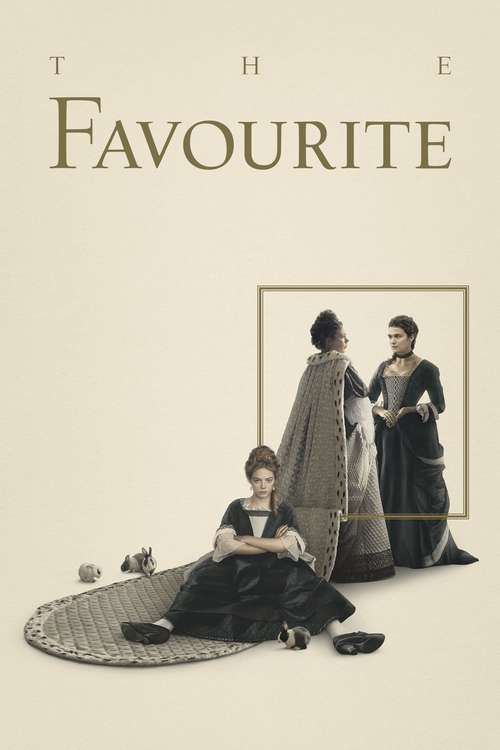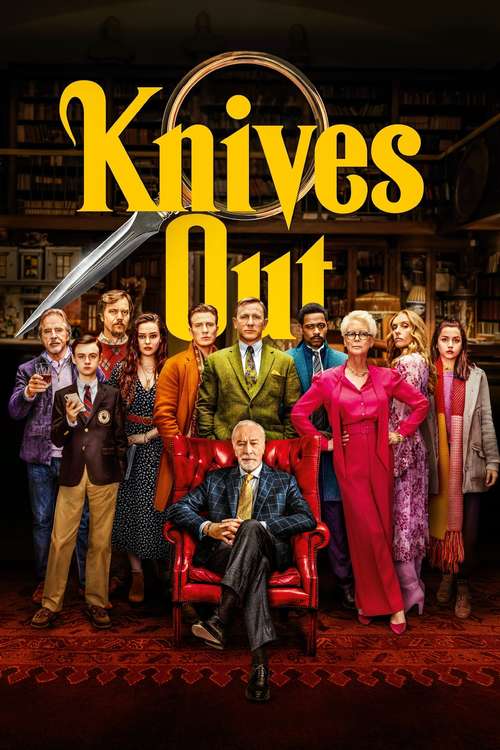Category: Longform
You are viewing all posts from this category, beginning with the most recent.
The Steep Approach to Garbadale, by Iain Banks (Books 2019, 23)
One interesting thing about this book that I don’t recall noticing when I read it twelve years ago is that the story itself is the titular approach. We don’t get to Garbadale House until about two-thirds of the way through, and then the rest of it is set there. With a few flashbacks and -forwards thrown in to both sections.
Banksie always plays with form and structure, and this is no exception. Not just the aforementioned directional flashes, but use of different viewpoint characters and tenses. Mostly it’s from the viewpoint of Alban McGill, one of the many members of the Wopuld family. Some scenes are from that of a cousin of his. There are even a couple of instances of promiscuous PoV, or “head-hopping,” where we get the thoughts of another character within the same scene.
Also some parts switch to present-tense, while most if it is past. There doesn’t seem to be any obvious function to those switches: it’s not like the tense reflects the timeline within the story. It seems arbitrary, almost random — though maybe I’m missing something there.
None of this harms the story, it’s just worth noting. The strangest of these devices is that there are three or four sections in first-person, from the PoV of a minor character. All the rest is third-person. That gives the impression that this character is more significant than he is. The text in those sections is also rendered with spelling mistakes and grocer’s apostrophes, as if it was the direct transcript of what this relatively poorly-educated character has scribbled down.
What’s the point of all that? I’m not sure. Just writerly games, maybe. I wonder if it suggests that Banks didn’t think the story itself was interesting enough to sustain the narrative, which might be a valid criticism. A well-off family with a secret at its heart has to decide whether to sell its business. The secret comes out, but it doesn’t make much difference. It would be significant to the characters affected, but we hardly see them after the reveal.
Endearing characters, though, and even on a second read (I didn’t recall the secret), it keeps the pages turning.
As I said twelve years ago, “In a book like this, the pleasure is in the journey more than the destination.”
OA Going Away
I just discovered via a conversation on Micro.blog, that Netflix have cancelled The OA.
This is very disappointing. The OA was an incredible, confusing, glorious piece of work, and Brit Marling, its co-creator, has assured us that it all has a plan and an ending.
Now (or back in August, anyway) she’s had to write its obituary. I suppose some other company might pick it up, but since it’s mostly Netflix who do that these days, it seems unlikely.
Presumably the two completed seasons, 16 episodes in total, will remain on Netflix. I‘d still recommend watching them. Just remember that you’ll be left somewhere strange.
Broken Glass
I’ve been feeling kind of sorry for Jo Swinson today. Also for myself, and the whole country, especially underprivileged people, people with disabilities, the young, the old, minorities, the marginalised… Anyone who’s going to suffer under the new regime.
But Swinson lost her seat by just 149 votes, which must be especially heartbreaking. She always impressed me as someone who knew what she was talking about and was on top of things. She was part of the Cameron/Clegg coalition, which is problematic, but let’s let that go.
She’s quoted as saying:
One of the realities of smashing glass ceilings is that a lot of broken glass comes down on your head.
which is great, and sad.
People criticised her for making the Liberal Democrat campaign too presidential, too much about her, and that probably was a mistake. Though would they have criticised a male leader in the same way?
And there’s the business of promising to revoke Article 50. Which I was and am completely in favour of, even if it can seem undemocratic.1 The problem was not the promise, but the messaging. The story should have been, “Elect us to government and you’ll give us a mandate to revoke. Give us less power and we’ll work for a second referendum.” That was the story: she just seemed to have some difficulty expressing it in clear, simple terms, at least in the debates I saw.
All that said, I’m still baffled as to what has happened to the country.
- it wouldn’t be if handled properly, but it’s too late to go into that now. ↩
The Politics We Deserve?
Well tonight is a fucking disaster. Even if the reality is lower than the exit poll, it looks like it’s going to be a landslide for the Tories. We’ll get a hard Brexit starting in a month and a half (and taking years and years before it “gets done,” of course). We’ll see more privatisation in the NHS. We’ll see more austerity, I don’t doubt, despite the spending pledges that might have been in the Tory manifesto. And we’ll see moves to restrict what parliament and the courts can do to protect ordinary people.
Our best hope is that Johnson is incompetent, and that’s not something we should have to rely on.
What is wrong with this country? Why do people continue to vote against not just the interests of the most vulnerable in society, but against their own self interest?
On Twitter a lot of people are blaming Corbyn, and I think they’re right. I said just the other day that I didn’t understand the dislike; but a thread by @RussInCheshire has helped to clarify my thinking. This regards not so much why people generally dislike him, but why he was ineffectual or worse as a leader. The key points:
People will say “the media is biased”. Yes. But that’s the environment Labour leaders always operate in. Complaining about it is like trawler captains complaining the sea is wet. Yep. Learn to thrive in those conditions, or get off the boat.
People will say “they treated him worse than any previous leader”. They did. Cos he was shit at working the press, had a history of opinions that could be easily made to look awful, was inept on antisemitism, shifty on Brexit and cantankerous on TV.
People will say “no way is he racist”. Perhaps. But if people accused me of antisemitism, I’d be able to clearly defend myself, demonstrate my credentials, and put in place a strategy to stop accusations. He couldn’t. If he’s not antisemitic, he’s inept.
People will say “voters love him in person”. I’m sure. But we’ve been in the age of broadcasting for 80 years. What the hell use is being warm and cuddly to 600 people in a field, when you come over badly to 60 million people on TV?
The thread starts here, but it might be easier to read here, as expanded by the Threader App.
I still don’t understand — I never will — people who switch from Labour all the way to Conservative. They just vox-popped someone on the telly who used to vote Labour, but “couldn’t, in conscience,” vote for them with Corbyn as leader. Fair enough. But she voted Tory. Why go all the way over to the party that diametrically opposes the values she claims to support, when there are other progressive parties, that support some of those values. The party she voted for opposes those values.
Baffling. Utterly baffling.
Fear and Loathing All Over the Land
The time is almost upon us, and I have The Fear. Or at least, I understand The Fear.
I understand the fear of Brexit; of giving the Tories control, yet again, of the NHS, and of the economy; and of their plans for changing the constitution in all the wrong ways, since I feel it myself.
But despite my problems with Corbyn, I don’t understand the loathing for him. It doesn’t seem to come from dislike of his policies. Some of the people who say they don’t like or don’t trust him seem to be Labour voters, who you’d expect to have similar beliefs. Even if those people have more centrist beliefs, you’d think they’d be close enough to the party’s current policies not to be put off totally.
It seems almost to be personal. Do some people dislike him as a person? Strikes me as odd, as he comes across as quite moderate and reasonable to me. To be sure, he can get snappy with interviewers at times, but it’s nothing compared to some people. And at least he doesn’t bluster; doesn’t lie; and always gives the impression that he knows what he’s talking about.
Yet some people say they don’t trust him. Sometimes those same people say they do trust Johnson, even as they acknowledge he lies. It’s unfathomable.
On tonight’s Channel 4 News they interviewed a guy in Johnson’s constituency who claimed to be a socialist, but who is going to vote for Johnson this time. They didn’t push him for an explanation.
In the same constituency there was a business owner who had always voted Tory but is not going to this time, because of the way the party has been taken over by the far right. It takes a Tory businessman to recognise what a “socialist” can’t. We are through the looking glass and no mistake.
Anyway, I’ll be voting Green. I hope everyone reading this will get out and vote on Thursday, for anyone who isn’t the Tories, and to stop Brexit.
Interstellar, 2014 - ★★★★½

I watched this again last night, and it’s really an outstanding film. There are some places where the gravity and/or relativity choices don’t quite make sense, but mostly the science is handled very well.
The philosophical aspects are also treated well. Do you put survival of the currently-living members of humanity above the survival of the species as a whole, or not?
The least believable thing, in a film full of challenging ideas, is the fact that our hero has been a pilot for NASA, but has somehow fallen off their radar, when they actually need people like him and have a base within a day’s drive of him.
You Gev It Away
I got Whammed1 in the bakery this afternoon. Walked in, took my earphones out, and, Wham! there it was. George Michael geving his heart to someone. Ever noticed that? He doesn’t say “gave,” he says “gev.” My daughter pointed this out a couple of years back, and now I can’t unhear it.
Oh well, there was never a chance of not hearing it, and to be honest, I don’t hate it like I used to. Remember back when we thought that bands like Wham! or Duran Duran were somehow “the enemy”? Those were stupid ideas. Music is music, and people have different tastes. Let’s let everyone enjoy what they like without judging them.
The most amusing part was that I heard a little girl in the queue behind me saying to her mum, “I just got Whammed.”
Also it’s odd that I haven’t heard ‘Fairytale of New York’ yet this year, except as a weird brass band version that was on the telly advertising some programme.
- Sense 2 at the time of writing. There doesn’t seem to be a way to link to a specific definition, which is surprising. ↩
Watchmen on TV
I succumbed. As I suggested I might.
It felt a little grubby, going to the NowTV site and setting up an account. As you know, Sky TV and I have a history. Or maybe an anti-history, insofar as I am anti everything that their former owner stands for. But the key word is “former.” With Comcast now owning it, I can feel a little better about giving them my time and possibly some money.
Still, though: grubby.
But what’s worse, as a viewing experience, is that their app is the worst video-playback app I’ve ever used. It’s fine at all the basics; it even has a ten-second jump back and forward feature, which is good. But! It completely fails at subtitles.
Now, in this era — this platinum age of television — subtitles are often an essential part of viewing. And that isn’t true just due to my age, because my kids, who are young adults, are at least as likely as us olds to want them on. Mumblecore actors are to blame. Or maybe bad sound on our TV. Or a combination. Doesn’t matter. We watch with subtitles on a lot of the time, and I wanted them on for Watchmen.
But NowTV — in its Mac app, at least — just can’t handle them properly. They either freeze, so you get the same sentence stuck on the screen for five minutes; or they just get out of sync. Sometimes they rush through minutes of text at a time, as if trying to catch up. In the end I turned them off.
But I watched one episode on my iPad, and the subtitles were fine there. So I guess it is the actual Mac app. The Mac plugged into the telly is an old one. A nine-year-old MacBook Pro, in fact. I’m impressed that it’s still working, though I did upgrade it at one point.
Anyway, that can’t be the reason it’s bad, because I’ve also tried it on my 2017 MBP, with exactly the same results.
But what about the programme?
It’s a sequel to the comic, set around thirty years later. I found the first episode kind of annoying, though I’m not quite sure why. Too much of it set in the past, maybe? But as we’ve got to know the characters and things have moved along, it’s definitely interesting. I’ve watched the first five episodes so far. Up to which point it’s kind of a cop show with an unusual background. Cops go masked so that criminals can’t identify them. Criminals go masked too, of course, specifically in Rorscach-style black and white masks.
And there’s a mysterious old guy who puts on plays reenacting the origin of Doctor Manhattan. You’ll have guesses about who he is, if you know the source material. Well, one guess.
I like the way they’ve built on the comic, and are weaving the backstory in. Though I think it must be extremely confusing for anyone who hasn’t read the novel, or at least seen the movie.
My main question (apart from the obvious ones, like what’s going on with Veidt?) is: why is Laurie using her father’s surname? It doesn’t make sense to me that she’d call herself Blake, instead of Juspeczyck.
Oh, and whatever happened to Dan Dreiberg? I want to see some Nite owl action. Something that looked a lot like the Owlship appeared in the first episode, so maybe he’ll turn up. As, I imagine, will Doctor Manhattan.
The Favourite, 2018 - ★★★

What were they doing with the justified text in the captions and even credits? Made it barely readable.
